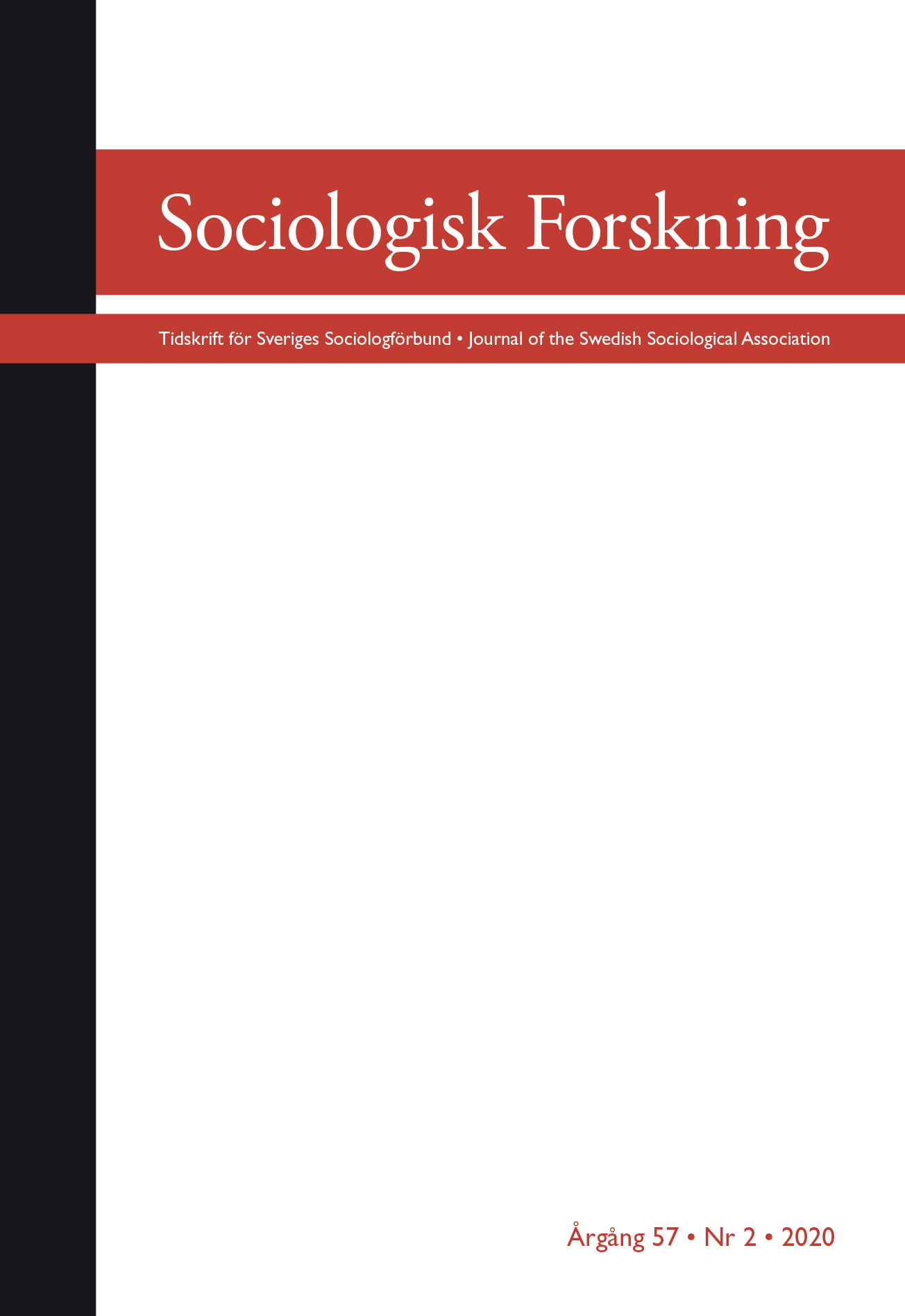Meanings of female genital mutilation among migrant minorities in Sweden
A feminist violence studies analysis
DOI:
https://doi.org/10.37062/sf.57.19969Keywords:
feminist violence studies, female genital mutilation, gender, migration, minoritiesAbstract
The article examines meanings and attitudes to female genital mutilation among migrated minorities in Sweden. It explores the importance of family, networks, work, the role of laws and regulations, and the meaning and importance of female genital mutilation. It draws conclusions on power structures around and determinants of female genital mutilation in relation to attitudes and attitudinal change.
The material was collected via four focus groups with 47 migrated men and women, originally from Somalia. Theoretically, the article draws on feminist institutionalism and the framework on gender regimes, and scholarship on intersectional violence, and expands the concept of violence beyond the physical, individual and intentional.
The article argues that the risk of female genital mutilation decreases considerably with migration. While some previous research has failed to consider migration as a process of attitudinal change, the article shows that attitudes do not simply migrate with migrants; they change through the processes of migration. It contributes to debates on violence from an integration-theoretical perspective, and shows how the concepts of isolation and mobility can contribute to better explanations of attitudes and practices of female genital mutilation.
Downloads
Published
How to Cite
Issue
Section
License
All content in Sociologisk Forskning is published with immediate open access, under the Creative Commons license CC BY-NC-ND 4.0.
All content may be read, downloaded, shared and printed for non-commercial purposes, free and without fees. Contents may not be altered. When content is reused, author, source and a link to the copyright licence must be provided. The author retains copyright to their content. No publication fees are charged.





